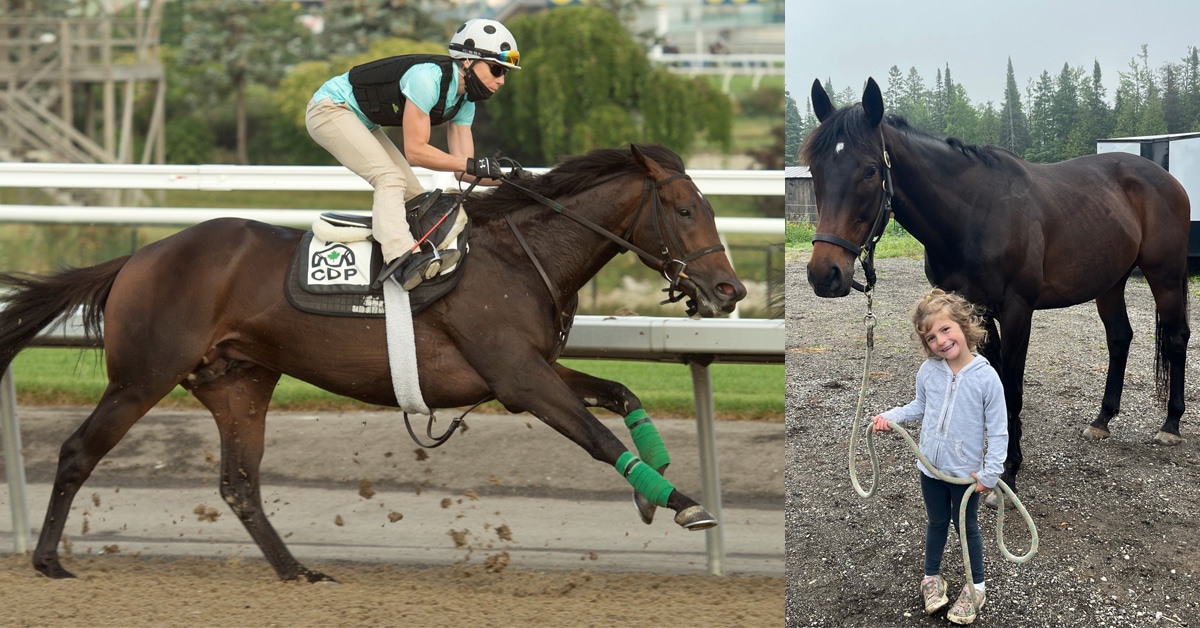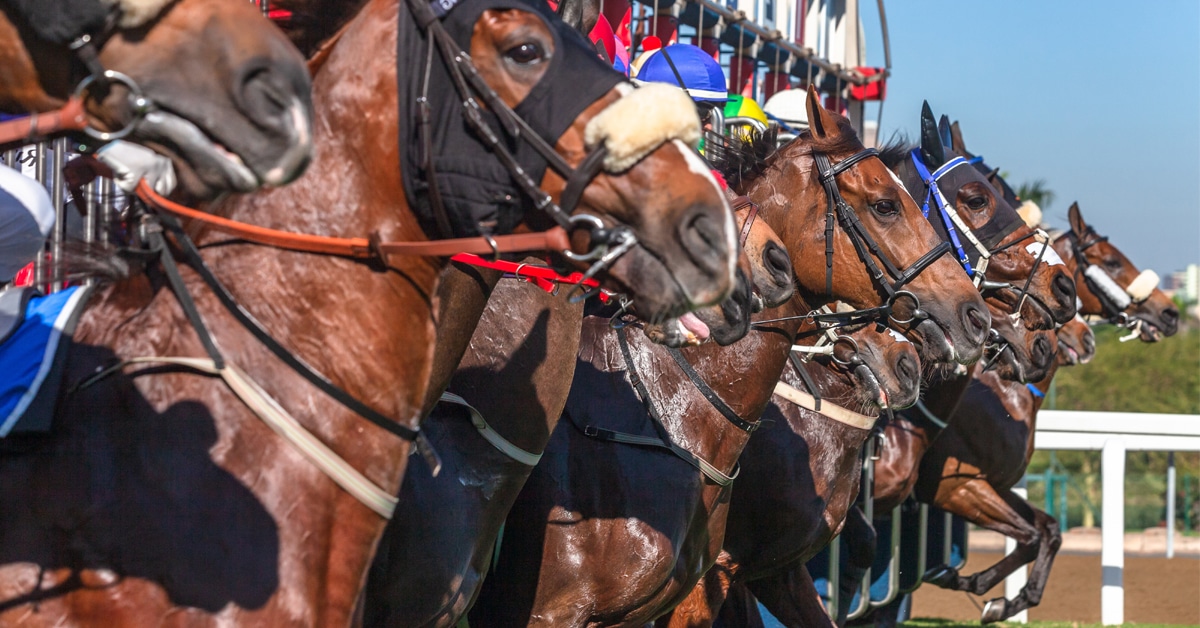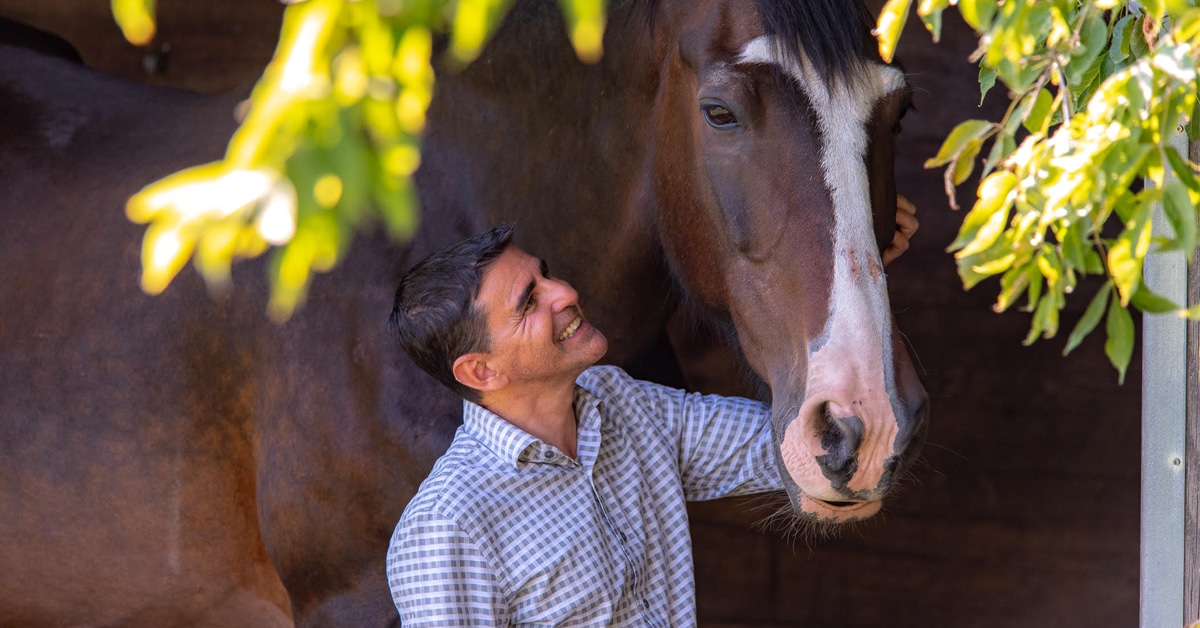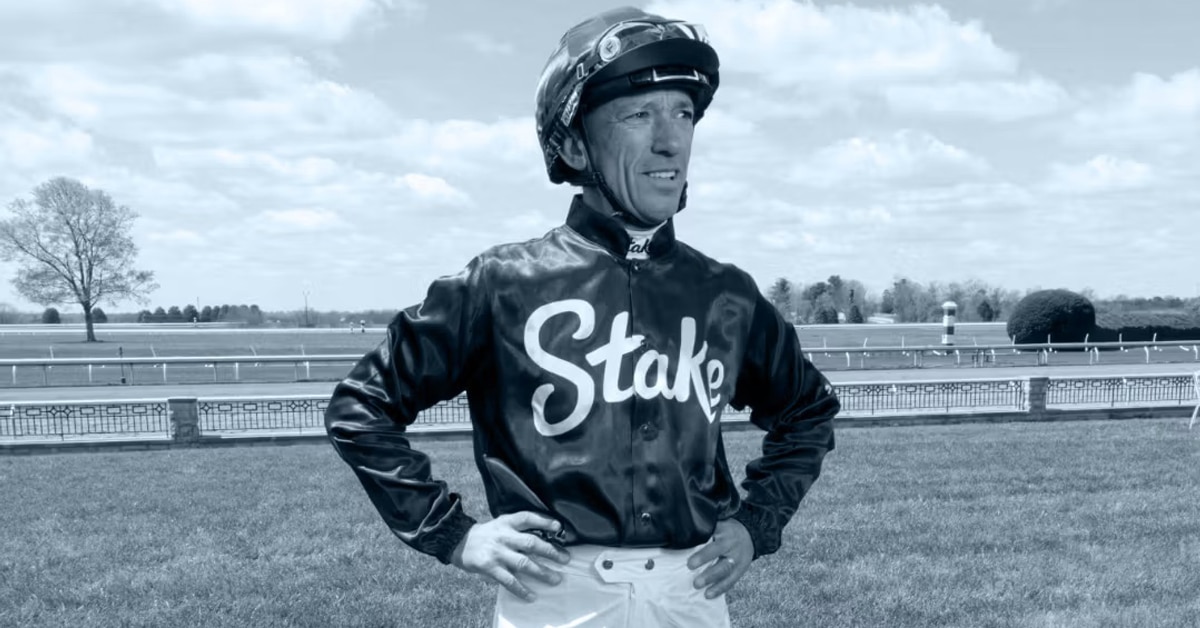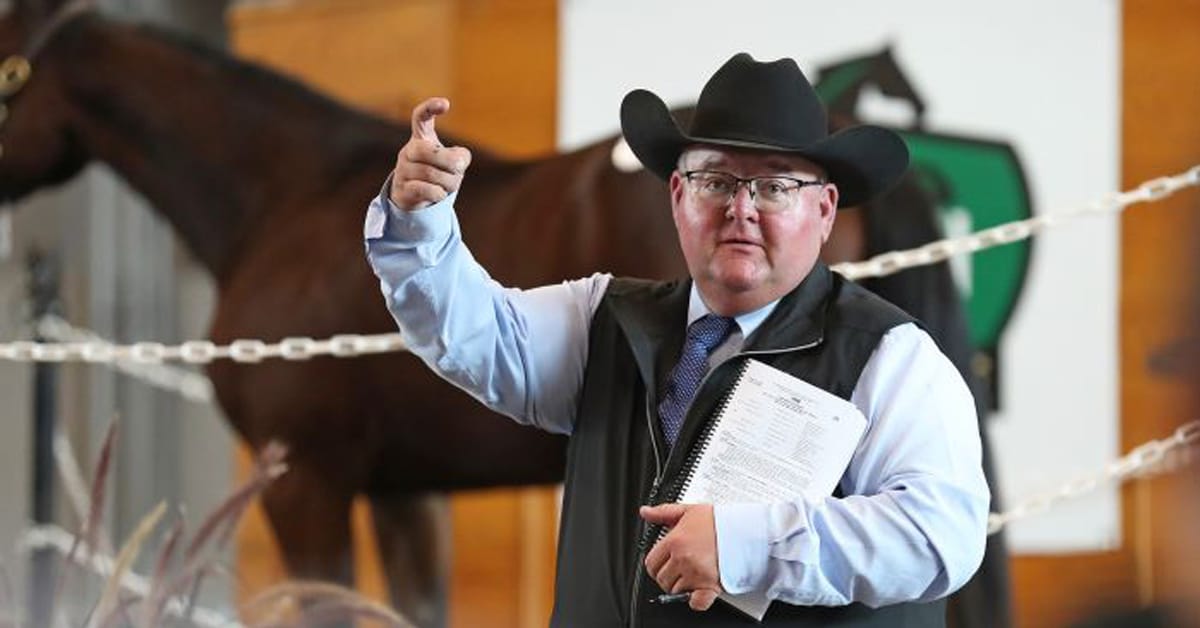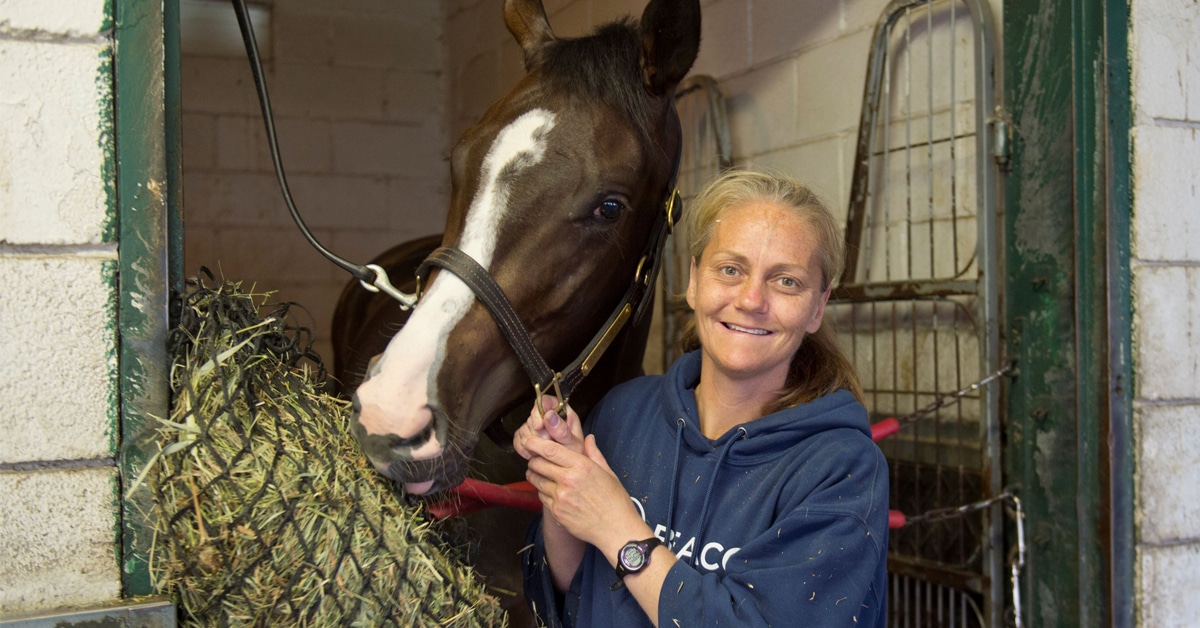Prominent British Columbia owner, breeder and businessman Glen Todd said Leif Nordahl has been, “a kingpin in the industry (in British Columbia) for many years.” Mike Heads from the B.C. Thoroughbred Owners and Breeders Association (BCTOBA) said he can’t believe Nordahl isn’t in the British Columbia Horse Racing Hall of Fame.
“(Nordahl has) been on every board we’ve had here,” said Heads, secretary of BCTOBA. “He just wants the betterment of the game. He doesn’t care about losing half-a-million dollars in a year. It’s his hobby, he wants to keep it going and he will use his expertise in the business world to keep it going.”
Todd, the thoroughbred representative on the British Columbia Horse Racing Industry Management Committee (BCHRIMC) said Nordahl — an octogenarian accountant who owned and bred numerous horses, too — had a stabilizing effect on the horse racing industry that likely saved it from extinction.
For his part, Nordahl isn’t all that interested in recognition. He just wanted to give back to the industry that’s been his passion ever since he cashed a triactor that paid $169 when he was a young man.
Over the last 30 years, Nordahl has served on the board of the Horsemen’s Benevolent and Protective Association (HBPA) of BC, was the founding vice-president and treasurer of BCTOBA and had his longest tenure with the Canadian Thoroughbred Horse Society (CTHS) of BC where he has a member beginning in 1981, a board member from 2003-2014 and president from 2009-2014.
“It was quite interesting being on all of those groups,” said Nordahl, who is now retired. “It’s kind of funny, I know the ins and outs on all of them. Part of it, too, being a chartered accountant and businessman in public practice, you learn to look at things a little differently. You look at them from a business point of view, rather than from a matter of looking at it from the horse’s side or the owner’s side, if you know what I mean. You kind of tried to look at the big picture rather than an individual situation, because without looking at the big picture you can’t solve the little picture.”
Todd said Nordahl’s great contribution to the industry has been his intelligence and ability to remain remarkably impartial.
“He was always working on behalf of the breeders, but he was always fair to the whole industry when push came to shove,” Todd said, emphasizing that Nordahl’s greatest role came at the BCHRIMC table.
The BCHRIMC, which was formed in the fall of 2009, is a four-member group made up of a representative of the provincial government, one from the standardbred association, one representing thoroughbreds and Great Canadian Gaming Corporation (GCGC), the track operator for both breeds in the province.
“The government put this committee together in the fall of 2009 because the industry was digressing as of 2008,” Todd said. “There was all kinds of agreements in place, everybody was fighting, everybody was arguing over splits, etc.
“The government took control and said, ‘This is the way we’re going to do it’ with every group having a say. It probably saved horse racing in British Columbia. It’s been very good.”
Nordahl isn’t one to praise himself, but admitted the BCHRIMC did critical work at a critical juncture and the industry in BC “sure wouldn’t be the same as it is today” without it.
“We were setting objectives as to how much money was coming in and how to spend the money, how to spread it amongst the purses and also to the various organizations and things of that nature. I was there for a little over three years,” Nordahl said.
“It was a matter of setting up the whole situation as to the flow of money from the government, from the betting and what portion would go to the various organizations. What helped me quite a bit was being a chartered accountant. I was very familiar with dealing with figures. I wasn’t lost.”
Being able to crunch the numbers and speak the truth as he saw it, didn’t make Nordahl a favourite with everyone in a fractious industry, Heads said.
“For whatever political reasons, he’s not loved by all factions,” Heads said. “The breeders like him, but there’s some people he rubs the wrong way because he tells the truth. He doesn’t look at racing through rose coloured glasses. He speaks the honest truth.”
Nordahl wouldn’t have it any other way.
IT WAS LOVE AT FIRST SIGHT FOR LEIF NORDAHL
A native of New Westminster, BC, Nordahl fell in love with horse racing as a teenager on trips to Hastings Park and Lansdowne Park Racetrack.
“It really started when I was a young kid when I went to the races to watch them run and play the ponies,” Nordahl said. “I got hooked when I ended up picking a triactor that paid $169.”
Always a horseplayer, Nordahl became a horse owner in his late 30s after establishing his career as a chartered accountant.
“The first horse I had was a horse I claimed called Chief Commander,” Nordahl said of the son of Command Module—Haigen that earned over $36,000 racing in western Canada from 1978 to 1984. “I claimed it off Jack Diamond. My trainer was Alex Murray.”
Such was the beginning of a pretty successful career as a horse owner that included a stint as a 50/50 partner with Bert Perry on a breeding farm in Langley, BC called Telegraph Trail Thoroughbreds Ltd.
“We had some stallions and a few broodmares. We did a lot of boarding of horses — racehorses and mares,” Nordahl said. “I had a lot of horses at one time. I had up to 28, 30 horses, including broodmares. But the really good horses I either claimed or I bought in the CTHS sale.”
Heads said Nordahl has, “had a lot of nice racehorses. The one thing I applaud him for is he’s tried it every way. He’s claimed horses out of Santa Anita, he bought a $100,000 horse at the Barretts Sale. He’s gone to Kentucky and bought $50,000 yearlings. He’s owned a stallion here in British Columbia and owned 10 broodmares, tried to breed his own and he buys at our sale here in BC. He’s contributed millions of dollars into this industry and he loves to gamble. He brags it up when he catches a Superfecta. It’s not about the money, it’s about the game. It’s about saying, ‘I nailed that horse.’ He shows me a ticket that’s $10 to win. Nailing it to some people is $200 or something. This is $10, but it’s okay. He showed a $30 profit and for an accountant, that’s huge any time you’re turning a profit.”
Nordahl’s voice bounces when he talks about his horses.
“I’ve had two champions. One horse, Excited Miss, was the 3-year-old champion for BC and won the filly award. Then another one I had was Remarkable Miss. That one was BC champion only. Both horses I purchased at the (BC) sale from Red Rock,” Nordahl said of his back-to-back multiple stakes winners.
Excited Miss, a daughter of Mass Market out of Excited Angel, won six of eight starts and more than $170,000 in 2005 and ‘06.
Remarkable Miss, a chestnut daughter of Finality out of Remarkable Gal, never missed a cheque, earning more than $175,000 in 11 career starts in 2007 and ‘08
“The best horse I ever had was a horse called Above the Table. Above the Table is a horse I claimed for $25,000. It was a really nice, big horse that ended up winning the Ballerina. Then I sent it to Santa Anita down south to Warren Stute and raced in quite a few stakes races down there. He was third in the California-bred Day. I lost it, he got claimed from me.”
Nordahl also proudly mentions One O Seven — a multiple stakes-winning Vice Regent mare out of Excruciation that earned over $175,000 in the mid-1990s and Deputy Sue — a multiple stakes-winning Silver Deputy mare out of Lotareason that earned over $230,000 and posted an 8-5-4 record in 24 career starts.
One of his last horses, Arabella’s Muse, is particularly special to him. She is a homebred sired by Finality out of Nordahl’s beloved champion Excited Miss. Arabella’s Muse, whom Nordahl produced with his daughter, Karen Nordahl, won multiple stakes and earned nearly $300,000 with an 8-5-2 record in 17 starts.
Though Leif currently does not own any horses, to his delight, Karen still owns both Excited Miss and Arabella’s Muse.
“She’s going to breed both of them this year,” Leif said.
TIME AND EXPERTISE
Heads said the roster of top horses Nordahl has campaigned over the last three decades is notable enough, but even more impressive is the contribution Nordahl has made to the industry at the boardroom table.
“What I’m most impressed with about Leif is the time he devoted — for nothing — to help the industry,” Heads said.
Todd said Nordahl often had a calming influence on negotiations and Nordahl’s strong suit was being big on compromise.
“He was a good leader of the breeders, he was always fair to the other two associations. He always waited until last to speak and then cooler heads would prevail. He would come up with a compromise that everybody would go for,” Todd said. “He was a steady influence on the whole industry, not just the breeders because he always thought things out before he spoke. It’s a big quality of his. I’ve always admired him because it always appeared to me that the breeders really came out the winner every time.”
Heads agreed with that assessment.
“He’s kind of the voice of reason,” Heads said of Nordahl. “Everyone needs a guy like that on a board, a money guy, a business guy and horse guy, but business guy first, obviously. If you get too many horsemen on a board they’re not businessmen, they’re horsemen and they will fight and get things their way even if they don’t have it coming to them.”
Yet all those meetings eventually became too much for Nordahl, who retired to spend more time with his grandchildren.
“He’s helped a lot of people out. He’s a good guy. It’s too bad he’s downsized, because we’re missing guys like him,” Heads said.
WHAT DOES THE FUTURE HOLD?
Retired on not, Nordahl is still a sharp observer of the BC industry he’s helped lead for most of his adult life.
“One of the biggest problems I think British Columbia has is the high cost of operations,” he said. “The cost to operate in BC is a lot higher than in Alberta. The price of hay, the grain and everything is a real problem. This has been reflected into the breeding industry, the cost for the trainers and as a result, to some extent, it’s kind of expensive. The other thing, too, housing is (more expensive) here than it is in Toronto.”
Nordahl said he also doesn’t believe Hastings Racecourse is the key to long-term stability for horse racing in British Columbia.
“(Hastings) is on land leased from the city of Vancouver. The lease now is only for three years. From a business standpoint, why would you spend a lot of money fixing up something and trying to make things better when your lease is only for three years? It’s a tough situation here in British Columbia,” Nordahl said. “The thing that
would solve it very, very quickly would be a long-term situation whereby they could build a racetrack on land with a casino similar to what they have in Toronto at Woodbine. That would be the saviour and it’s been talked about for years and years and years. People come along and it just doesn’t seem to get to the final stages.”
Yet, all that uncertainty and all those meetings hasn’t dulled Nordahl’s passion for the game.
“There’s a group of us that go every Saturday to the track,” he said. “We have our laughs and enjoy our betting and watch the horses from BC running down at Turf Paradise and Golden Gate and all over. It’s just a bunch of old time players.
“I’m still fascinated how hard the horses run to try to out-run each other and how some of them have that little extra that the other ones don’t have.”
Proving that 60 years on, Leif Nordahl — a man who used common sense, honesty and a talent for number crunching to help stabilize a once-failing industry in British Columbia — is still a horse-loving horseplayer at heart.
The Latest
